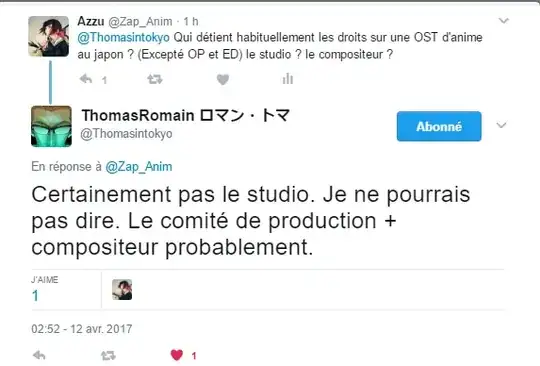I watched episode 7 of Space Patrol Luluco today, and, well, that sure was a thing. Saliently, it featured
a piece from the Kill la Kill soundtrack: "Gekiban Tokka-gata Hitotsu-boshi Gokuseifuku" (OST 2 track 1), which is basically the soundtrack-ified version of "Before my body is dry", a.k.a. "DON'T LOSE YOUR WAY".
(I'm spoilering this because, frankly, this is the best anime-related surprise I've gotten in ages.)
This got me thinking - who typically owns the soundtrack of an anime? Is it the composer, or is it some other party, such as the animation studio or the production committee?
(By soundtrack, I mean the soundtrack; not OPs/EDs, which I strongly suspect tend to have different ownership schemes.)
The situation in Hollywood is interesting as a point of comparison - various ownership schemes seem to be possible (though I don't know which are more common). In some cases, the soundtrack will be treated as a work-for-hire owned by the film's producers; in other cases, the composer will own the soundtrack and will license usage rights to the producers; and surely other possibilities exist. (Keep in mind, of course, that Japan and the US have fairly divergent conventions when it comes to the handling of intellectual property, so the situation in Hollywood is probably not the same as the situation in... Akihabara?)
